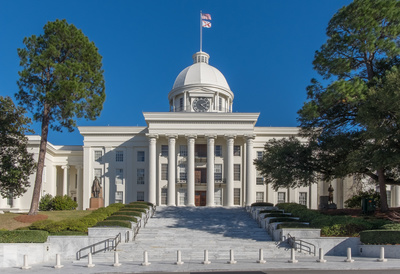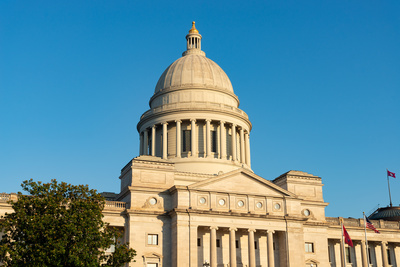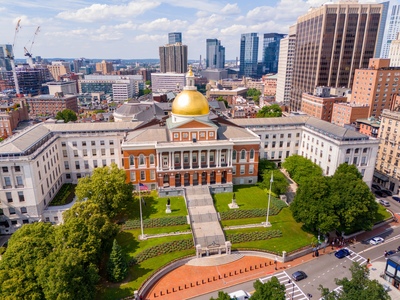
Health Care & Wellness
State Tobacco Legislation in 2025 Tackled Vaping, Nicotine Pouches, and More
February 5, 2026 | Geoff Hawkins
November 5, 2025 | Katherine Tschopp

Key Takeaways:
As the federal shutdown reaches day 35, it is now the longest government shutdown in United States history. Millions of Americans entered the month of November without their Supplemental Nutrition Assistance Program (SNAP) benefits being reloaded. This is the first time SNAP benefits have been suspended due to a lack of funds since the program was created in 1964. Since the U.S. Department of Agriculture (USDA) announced that “the well has run dry,” for SNAP funding, state lawmakers have taken the reins, adopting varying strategies to provide food assistance for recipients anticipated to be affected by the federal funding lapse on November 1.
One of the predominant, bipartisan methods states are utilizing to make funding available is through executive orders declaring states of emergency. The Governors of Alaska, Hawaii, Illinois, Kentucky, Louisiana, Maryland, New Jersey, New Mexico, Ohio, Rhode Island, and Virginia issued the orders to limit funding transfer requirements and authorize the transfer of other state appropriations to temporarily fund food assistance efforts.
In addition to official executive actions, Governors in Democratic-trifecta states, such as Connecticut, New Mexico, and New York, granted one-time funding awards to local food banks. Governors in red states like Alabama, Florida, and Oklahoma reiterated that at the state level, lawmakers’ hands are tied because SNAP is a federal program. They encouraged Congressional Democrats in Washington, D.C. to end the shutdown, and state residents to donate to food banks or their neighbors within their local communities. Some Governors are also delaying the commitment of state funds, as it remains uncertain if states will receive federal reimbursement for allocating money to SNAP during the shutdown.
On October 28, Democratic Governors from Kansas, Governor Kelly; Kentucky, Governor Beshear; and Pennsylvania, Governor Shapiro joined Democratic Attorneys General in filing a lawsuit against the Trump Administration, specifically the USDA, its Secretary Brooke Rollins, the Office of Management and Budget (OMB), and its Director Russell Vought, declaring the Administration’s suspension of SNAP benefits during the federal shutdown as unlawful.
The very next day, 20 Democratic Governors issued a public letter to President Trump, urging him to direct the USDA to release contingency funds to maintain SNAP benefits through the duration of the federal government shutdown.
State legislators also took action, introducing bills to authorize and require relevant state agencies to fund SNAP, TANF, and WIC in Ohio, and WIC in Wisconsin at normal benefit levels. In Pennsylvania, HB 2004 would establish an Emergency SNAP Benefits account to temporarily fund SNAP during future government shutdowns. Multiple measures introduced in Michigan (HB 5193, HB 5194, HB 5195) would appropriate set monies from the State General Fund to the Department of Health and Human Services and the Food Bank Council to counteract the benefit freeze. Other pieces of legislation introduced this past week urge the President and Congress to act, by reopening the government or resuming SNAP benefits during the shutdown, including measures in Illinois (IL HR 543), Massachusetts (S 2686, S 2688) and Michigan (SCR 7, SCR 85, HR 204, HR 205).
Virginia Governor Glenn Youngkin (R) has gone the furthest to create a first-of-its-kind SNAP-parallel state program called the Virginia Emergency Nutrition Assistance (VENA) Initiative. VENA will begin providing temporary weekly benefits to current SNAP recipients via their existing EBT cards beginning November 3. Youngkin acknowledged the Initiative’s challenges stating, “This parallel system is like building an airplane while it's taking off. It’s never been done before.”
To stay up to date with state actions on SNAP funding during the shutdown, click here. We will be updating the document as states take additional action.

February 5, 2026 | Geoff Hawkins

January 27, 2026 | Lisa Kimbrough

January 27, 2026 | Amber Thyson